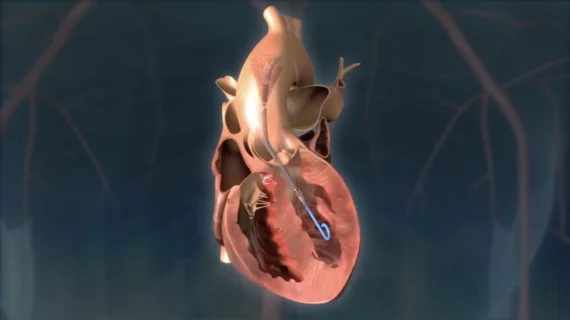Impella heart pumps linked to improved high-risk PCI outcomes
High-risk percutaneous coronary intervention (PCI) with an Impella heart pump is associated with better outcomes, including a significantly higher survival rate, than high-risk PCI with an intra-aortic balloon pump (IABP), according to new findings published in the American Journal of Cardiology.[1]
“Impella was approved by the U.S. Food and Drug Administration in 2015 for use during high-risk PCIs; however, its safety and efficacy compared with an IABP has not been evaluated in contemporary practice and remains debated,” wrote lead author Alexandra Lansky, MD, a cardiologist with Yale-New Haven Hospital and professor of medicine at the Yale School of Medicine, and colleagues.
Lansky et al. examined data from nearly 2,200 patients who underwent high-risk PCI from April 2016 to June 2019. While 1,447 patients underwent high-risk PCI with an Impella heart pump, the remaining 709 patients underwent high-risk PCI with an IABP.
Overall, the group found, in-hospital survival was significantly higher among the Impella patients (95.3%) than among the IABP patients (91%). The Impella heart pumps were also linked to a lower myocardial infarction rate (2.5% vs. 11.9%), a lower cardiogenic shock rate (8.3% vs. 18.9%) and a shorter adjusted length of stay (3.4 days vs. 4.8 days).
The authors did note that Impella heart pumps were linked to much higher mean index hospitalization costs ($47,667 vs. $33,684). However, they wrote, the Impella heart pumps were linked to lower readmission lengths-of-stay and readmission costs. After 90 days, this causes the total hospital charges to be comparable for the two treatment options.
“This study from a large contemporary, real-world database is further evidence of the benefits of using Impella during high-risk PCI to stabilize hemodynamics, prevent hemodynamic collapse, enable optimal revascularization and improve clinical outcomes,” Lansky said in a prepared statement.
This analysis was funded by Abiomed, the vendor that manufactors the Impella heart pumps. Also, multiple authors—including Lansky—have working relationships with Abiomed.

